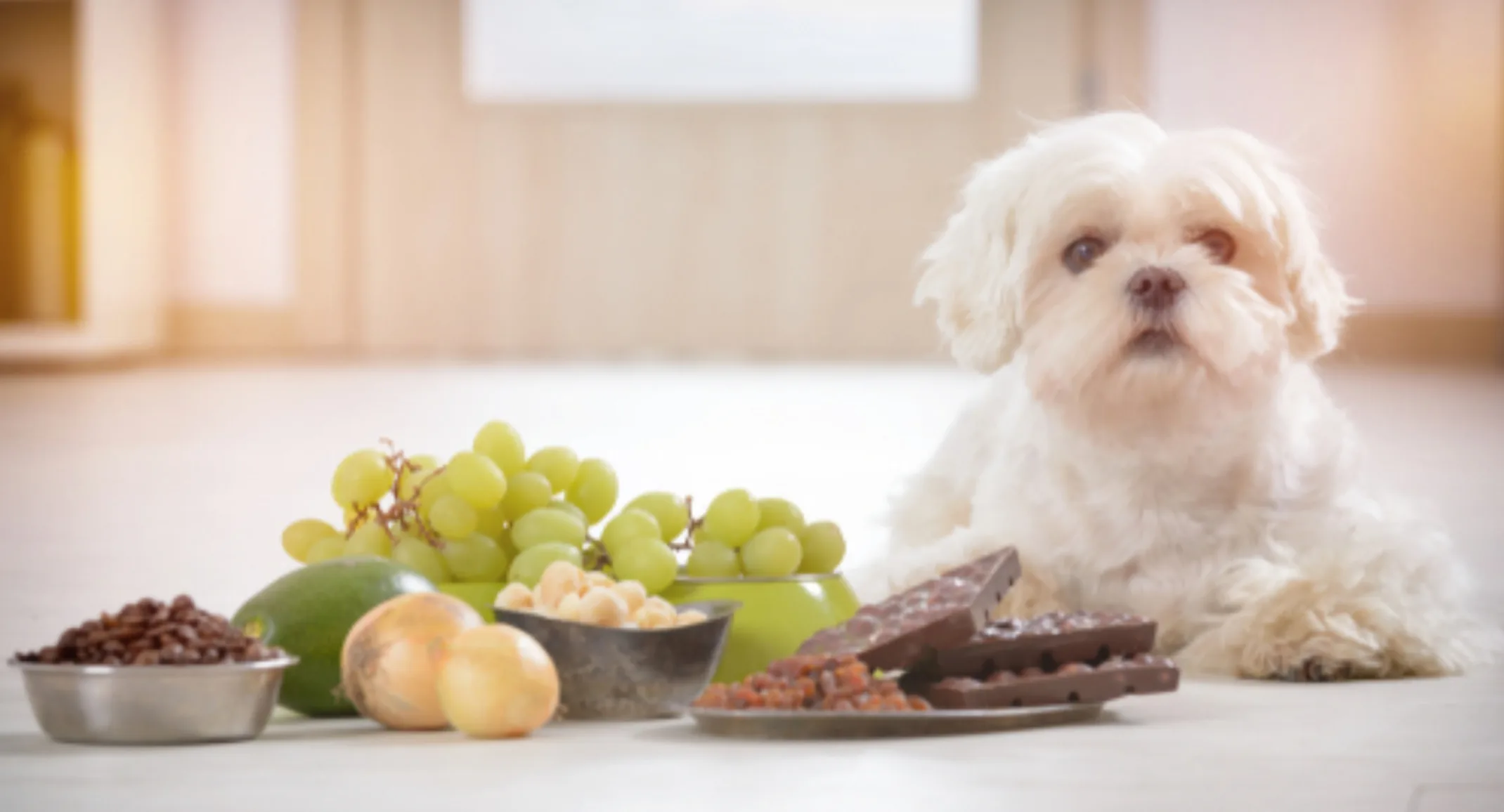What’s Poisonous to Pets? Part 1: Inside Your House
General

It happens to everyone at some point or other: Fido or Fluffy gets into a cabinet (or storage bin or your purse or…) and starts to chew on what she finds. If we’re lucky, she doesn’t find anything harmful or do any permanent damage to her newfound chew toys. But sometimes our furry friends find something that could make them sick – they find something that’s poisonous to them. March is National Pet Poison Prevention Month, so today we’re going to talk about household items that can be poisonous to pets.
Common Household Items That Are Poisonous to Pets
In 2015 the ASPCA put out a list of its 10 most common pet toxins, and the majority of those are found in nearly every house! Let’s look at the items on their list that are commonly found indoors to see what kinds of things you need to keep away from Fido and Fluffy.
Over-the-counter medicine – This category includes herbal remedies, as well as things like Tylenol, ibuprofen, cold medicine, and the like. As for herbal and “natural” remedies, while they may be great for us, they are not always good for our pets – there are many ingredients in our products that are toxic to Fido and Fluffy!
Human medicine – Most people know that their medicine should be kept away from their pets, but this category still accounts for thousands of cases of accidental poisoning every year. It’s imperative to keep these away from your furry friends!
Insecticides – While there are some insecticides that are safe for use on our pets (like topical flea and tick killers), there are many insecticides that are decidedly unsafe for them. One type you might not expect, though, is flea and tick treatments labeled for a different type of animal. For example, topical flea preventatives labeled for dogs, when used on cats, can cause nervousness, twitching, seizures, and sometimes death. The key here is that flea preventatives must be used according to the directions on the label! (This particular rule of thumb is good for all insecticides.)
Human foods – There is a growing trend to feed pets homemade food, and this practice can be fine. However, it is not true that all human foods are okay for our pets. For example, onions, grapes, raisins, macadamia nuts, garlic, alcohol, caffeine, and unbaked yeast bread dough, among others, can be dangerous to our dogs and cats. Another ingredient to watch out for is xylitol, which is immediately dangerous to dogs, causing hypoglycemia, weakness, and sometimes liver failure and death. Xylitol is found most commonly in sugar-free gum, children’s chewable vitamins, some nut butter, and much, much more.
Household items – Some everyday items in the house, like cleaning products, paint and fire logs, can be dangerous to your pets, too. Be sure to store them securely and use them according to their directions.
Veterinary medicine – These products may have been prescribed to Fluffy or Fido, but if they’re not taken in the proper doses, they can be dangerous!
Chocolate – The ASPCA Animal Poison Control Center received more than 30 cases per day in 2015 of chocolate toxicity in pets. In general, the darker the chocolate, the more dangerous it is.
This list isn’t comprehensive, but it does include the main offenders. However, one category that’s not included that bears mentioning is smoking products. Nicotine – including cigarettes, cigars, smoking cessation patches, nicotine gum, etc – is highly toxic to dogs even in low doses. There’s more on the list of what’s poisonous to pets, but they’re usually found outdoors – those types of potential toxins will be the topic of another blog post this month!
An Ounce of Prevention…
Of course, the main way to keep your pet from being poisoned is to keep these items away from them. As we all know, that can be easier said than done sometimes, particularly with especially determined pets. Prepared pet parents, then, may be happy to know that they can download a free app from the ASPCA Animal Poison Control Center (APCC) that gives detailed information about poisons and what to do if their pet ingests one. If you think your cat or dog has accidentally eaten something that’s poisonous to pets, give us a call!
